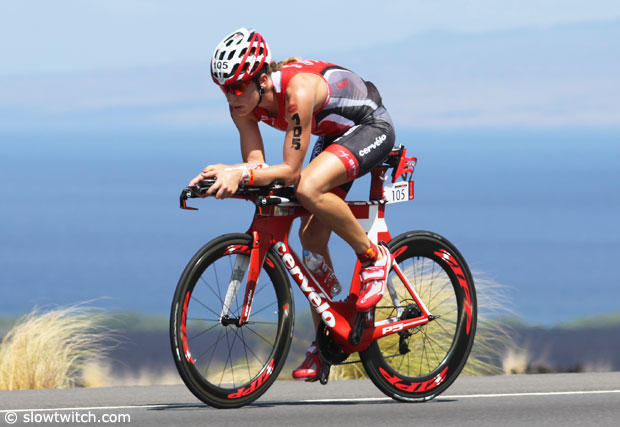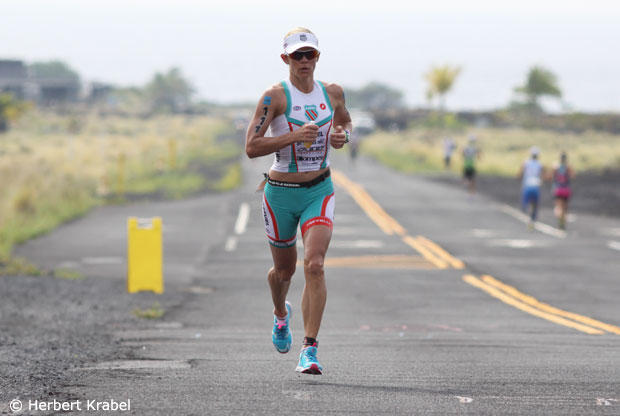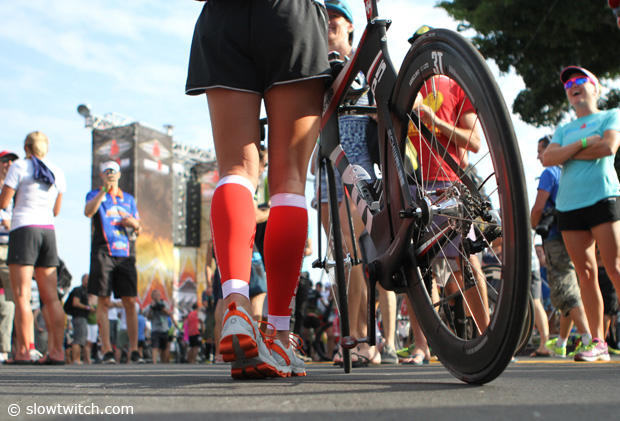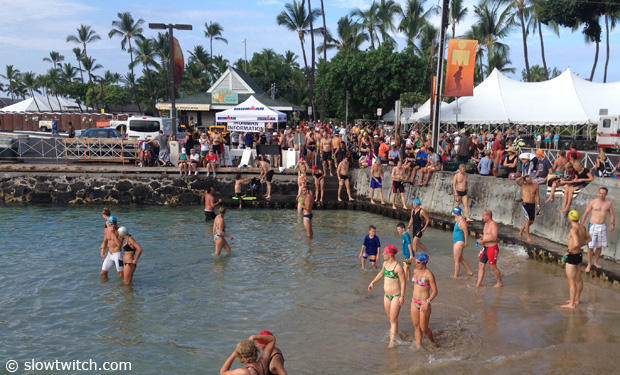The Fight for a Fuller Discussion
I'm reading today in Outside Online The Fight for Gender Equality, another call for gender equity in the Hawaiian Ironman. It's from my colleague Julia Polloreno, the editor-in-chief of Triathlete and Triathlete.com.
This is the latest in a drumbeat that cannot be comfortable for Ironman. As a lot of Slowtwitchers know, I have had a problem with the quality of the dialogue by a number of those who've chosen to participate in the discussion. But I can't fault Ms. Polloreno. Her message is clear, concise and her compass is pointed north. I think we have, with her piece, a sound basis for a constructive dialogue. Can I tell you what I think is missing from the discussion?
What I hear, publicly and privately, is that there is no real cost to Ironman to add 15 female slots. And that's true, there is no overcoming burden to adding 15 slots to the pier this year. The cost is in the 500 slots you might be asked to take out of the men's age group field next year. Those who advocate for the extra 15 slots for the pro women blithely, too quickly – in my opinion – gloss over the affect on the age group women's qualification numbers.
"I'm not advocating for 500 more slots for the women," Ms. Polloreno wrote, "… adopting a sweeping policy of equal Kona slots for men and women in both amateur and pro ranks."

But neither did she foreclose on the idea. Nowhere is Ms. Polloreno expressly telling these women that they are not going to get, and should not expect to get, and should not feel the right to have, those extra 500 slots the AG women would be eligible for, carved from the men's AG field were gender equity to cover the entire race.
Ms. Polloreno did not stride out that far with her piece in Outside Online. Nor has Sara Gross, Rachel Joyce, Kelly Burns Gallagher, nor anyone else who is out front, pushing this initiative. At least, not in what I've read. (I invite any of them to express in these pages her full-throated, fleshed-out opinion on how this impacts the age-group men and women who have Kona ambitions.)
Somebody's got to clearly send the message Ms. Polloreno obliquely sent. Somebody's got to squarely face the age group women and tell them proportional representation is their rule, while equality in numbers with the men is the rule for the pro women. Somebody has to face the specter of standing up to hundreds or thousands of women, should a group representing these women stand up and ask for equality. Whose job is that?
I suppose it's the job of Andrew Messick, the CEO of Ironman. He is a triathlon enthusiast, and was well before ever taking on the job he now has. He ran the Western Hemisphere's most important professional bicycle race while, privately, a tri geek. His job is to stand in between his fellow tri geeks and a group of corporate owners whose vision does not extend past the quarter-end and whose field of play (at least in my imagination) is 18 holes long, probably negotiated aboard an electric cart. He's being asked by the pro women and their apologists like Ms. Polloreno to take an awfully big risk, and he's being asked to take that risk by himself.
The gamble is that nobody knows whether this year's 15 slots is next year's 500 slots. While 15 slots does not imperil the financial structure of the Ironman, depriving three-quarters of Ironman's customers a full third of their chance to get to Kona via a race in their hometown, home country or home continent does imperil the business. It makes the fellows in their golf carts very nervous (or if it doesn't, it should).

Do I believe the pro field should be gender-equal in Kona? Yes, because I ask myself what would happen if the women engaged in a robust effort to attract new Ironman Pro members, so that the women pros outnumbered the men 3-to-1. Would I be willing to adjust numbers, placing 60 pro women and 20 men on the starting line? Yes I would in the age group field, but not in the pro field. Sauce for the goose is sauce for the gander. Intellectual honesty, if nothing else, requires me to stand on the side of gender equality on the pro start line in Kona. Still…
There is never any cost or risk for the aggrieved simply to air their grievances. The cost presents itself when you take a stand that might might result in a lot of people taking violent issue with your opinion. The cost shows up when you make a change that might cost you your job, your career, and your treasure. It comes at no cost for Ms. Polloreno or any of these women to ask for 15 slots. But whom among them will pledge, now, to stand alongside Andrew Messick and explain to their age group sisters that they will oppose, publicly, any move to extend gender equality beyond the pro field? If you expect Mr. Messick to die taking that hill, are you willing to die alongside him?
The other notable omission from this conversation is the option of simply lowering the male pro total by 15 slots in consideration for a corresponding benefit. Why? Because, again, there is no cost for the women to ask for 15, but there is a cost to publicly mention the converse. No pro woman wants to invoke the ire of her pro male counterparts.
In my opinion, an elegant solution would be 35, 30, or 25 slots allotted equally to male and female, but with a corresponding increase in the prize purse, such increase used to deepen the purse. Taking slots away from the pro field not only gives that entry fee to the Ironman Corporation, it invests Ironman with the ability to animate an age group qualifying race with Kona slots, generating the gross profit that flows from an event newly invested with opportunities for the Kona-ambitious. For this "gift" of slots by the pros back to the Corporation, I would like to see money paid 20 or even 25 deep, so the fewer pros who ran the gauntlet and made it to the Island would walk away with a paycheck befitting their yearlong efforts.



